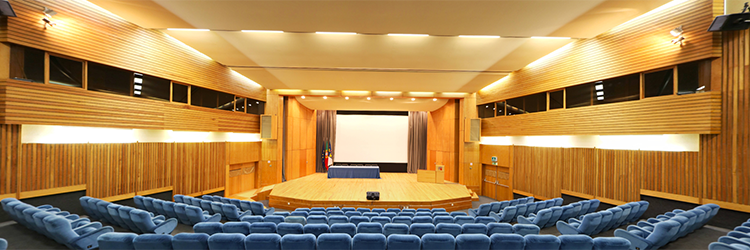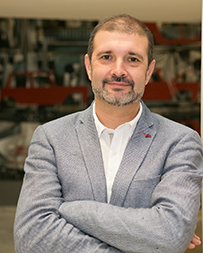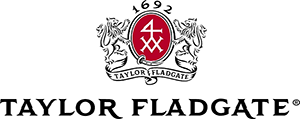EAI MobiHealth 2023 was held as Hybrid conference.
Thank you for participating!
We are pleased to invite you to register your paper


Computer Science PhD holder and a Full Professor specializing in Systems Engineering and Automation. They have extensive experience in mobile robotics and have been conducting research on robotics in minimally invasive surgery since 1998. Their work has received support from the Spanish National Research Plan, and in 2004, they developed Spain's first robot for assisting laparoscopic surgery, which was successfully used in a clinical setting.
University of Malaga
Keynote speaker


He's a Computer Science and AI professor at the University of Cassino, Italy. Since 2018, he coordinates the Erasmus Mundus project "Medical Imaging and Applications" and oversees the M.Sc. in Computer Engineering. His research concentrates on Pattern Recognition, Image Processing, Machine Learning, and Deep Learning for biomedical, neuroscience, cultural heritage, and IoT applications. Currently, he's focused on deep learning for Computer-Aided Detection and Diagnosis. He's authored 70+ papers with 850+ citations on Google Scholar.
University of Cassino and Southern Latium
Keynote speaker


Mobile Networks and Applications (MONET) Journal (IF: 3.259)
IEEE Access SI on Convergence of Sensor Networks, Cloud Computing, and Big Data in Industrial Internet of Things (IF: 3.244)
Sensors Special Issue “Smart Industrial Wireless Sensor Networks (IF: 2.677)
Learn more
Publication
Indexed in


Mobile Networks and Applications (MONET) Journal (IF: 3.259)
IEEE Access SI on Convergence of Sensor Networks, Cloud Computing, and Big Data in Industrial Internet of Things (IF: 3.244)
Sensors Special Issue “Smart Industrial Wireless Sensor Networks (IF: 2.677)
Learn more
Publication
Indexing


- Members with top 0.1% EAI Index at the end of the year will become EAI Fellows
- Credits are awarded to all authors based on review, but regardless of acceptance
- The first open and transparent way of recognizing great researchers worldwide
Get the recognition you deserve with EAI Index:
Welcome to the EAI Community
Let the EAI Community help you build your career with collaborative research, objective evaluation, and fair recognition:
- Extra visibility for your paper and fair review → Community Review
- Get credits to receive membership ranks and global recognition → EAI Index
- Real-time evaluation and feedback on your presentation on-site → EAI Compass
Proceedings
Proceedings have been published in SpringerLink Digital Library
About MobiHealth 2023
The healthcare industry has grown significantly due to various factors, including an ageing population, a rise in chronic diseases, and technological advancements. Wireless communication and mobile computing have significantly impacted the healthcare sector, with technology constantly evolving through the development of new technologies such as 5G, the Internet of Things, robotics, and smart buildings. Incorporating these innovations, along with e-health, m- health, edge computing, software-defined networks and network function virtualization, have further transformed the industry. The conflict in Europe and other issues such as COVID-19 recovery and pandemic preparedness have slowed the progress towards improving global health governance and outcomes. New challenges continue to arise and must be addressed. In addition, integrating innovative technology involves numerous complexities and requires sound solutions to ethical, legal, social, and security challenges to achieve socio-technical alignment and societal acceptance. The goal of MobiHealth 2023 is to bring together individuals and organizations worldwide working in wireless communication, mobile computing, and healthcare applications to share ideas, explore innovative and emerging solutions, and build collaborations.
Topics
We welcome contributions from the following fields:
Medical, Communications and Networking:
- Medical edge computing
- Medical internet of things
- Health IT Infrastructure
- QICS-Qualitative Intelligence and Communication Systems
- RTLS – Real-Time Location Systems
- Converged networks and applications
- Network and services virtualization
- Quality of Service (QoS) and Quality of Experience (QoE)
- Software-Defined Networking (SDN) and network management
- Delay-tolerant, fault-tolerant and reliable communication
- In-hospital networking, body area networking and cloud-integrated networking
- Nanoscale/molecular communications
- Network coding and error detection/correction
- Resilience and robustness communications
- Data Security and Protection
Digital Imaging and Communications in Medicine (DICOM).Biomedical, and Health Informatics:
- Bioinformatics
- HCI – Human Computing Interaction
- CDSS- Clinical Decision Support Systems
- ePrescription
- eTherapy
- Medical Dictation
- Interoperability for personal Health systems
- Data preprocessing, cleansing, management and mining
- Data quality assessment and improvement
- Medical imaging
- Computer-aided detection, hypothesis generation and diagnosis
- Evidence-based medicine
- Evolutionary and longitudinal patient and disease models
- Clinical workflow
- Medication adherence and health monitoring
- Smart health and big data
- Methods for inputting, transmitting and processing data for e- health
Multimedia e-health data exchange services.Signal/Data Processing and Computing For Health Systems:
- Big data models, theories, algorithms, approaches, solutions
- Machine learning, data mining, web mining, and graph mining
- Deep Learning for Health
- Wearable sensors for patients monitoring
- Virtual rehabilitation (stroke, Parkinson disease, Alzheimer disease, multiple sclerosis)
- Telemedicine for aging
- Gait analysis (arm swing, balance, posture control)
- Eye-tracking
- Falls (detection, tracking)
- Smart building for future of health and the wellbeing
- Neuromodulation
- Medical Speech/Voice Recognition Systems
- mHealth and Mobile Device Software for Healthcare
- Cancer (screening and diagnosis)
- Assistive Technology and Enhanced Living Environment (ELE)
Complex systems and optimal pandemic control.Health Information Systems:
- Health Information Systems
- Patient Relationship Management
- Health Information Exchange Solutions
- Medical Semantic Web
- Medical & Patient Scheduling Software
- Medication Administration Systems
- Healthcare Information Systems Integration, Interoperability & Connectivity solutions
- Medical Records & Document Scanning
- Ethics and Social Impact of Information Systems and New Challenges
- Clinical Reporting Systems
- Nursing Informatics
- Personal Health Records
- Picture Archiving and Communication Systems (PACS)
- Building Information Modelling (BIM) for healthy buildings
- The role of IT to a safe building construction.
Publication
All registered papers will be submitted for publishing by Springer and made available through SpringerLink Digital Library.
Proceedings will be submitted for inclusion in leading indexing services, such as Web of Science, Compendex, Scopus, DBLP, EU Digital Library, IO-Port, MatchSciNet, Inspec and Zentralblatt MATH.
Additional publication opportunities:
- EAI Transactions series (Open Access)
- EAI/Springer Innovations in Communications and Computing Book Series
(titles in this series are indexed in Ei Compendex, Web of Science & Scopus)
About EAI
This event is organized by EAI.
EAI – European Alliance for Innovation is a non-profit organization and a professional community established in cooperation with the European Commission to empower the global research and innovation, and to promote cooperation between European and International ICT communities.
EAI’s vision is to foster excellence in research and innovation on the principles of transparency, objectivity, equality, and openness. Our guiding principle is community cooperation to create better research, provide fair recognition of excellence and transform best ideas into commercial value proposition.
EAI‘s mission is to create an environment that rewards excellence transparently, and builds recognition objectively regardless of age, economic status or country of origin, where no membership fees or closed door committees stand in the way of your research career.
Through these shared values, EAI leads the way toward advancing the world of research and innovation, empowering individuals and institutions for the good of society to fully benefit from the digital revolution.
Important dates
Previous MobiHealth editions
2022 – Virtual conference
2021 – Virtual conference
2020 – Virtual conference
2019 – Dublin, Republic of Ireland
2017 – Vienna, Austria
2016 – Milan, Italy
2015 – London, Great Britain
2014 – Athens, Greece
2012 – Paris, France
2011 – Kos, Greece
2010 – Ayia Napa, Cyprus




